Kabah lies south of Uxmal, and connected to the larger city by a sacbe, or Mayan road. While almost certainly subordinate to its northern neighbor,
Kabah was nonetheless an important location in its own right, and greets
todays visitors with its own ambiance.The best known structure is
the Palace of the Mask, an imposing building used for religious rituals
and other state ceremonies. Its terrace contains extensive hieroglyphic
text behind an alter that may well have been used for human sacrific.
Carved panels, door jams and lintels make this a breathtaking example
of the incredibly advanced and complex Mayan stone carving art.
The people of Kabah grew crops,
participating in the great Mayan trade routes, and kept a wary eye to
the north. The relationship between the smaller cities and the larger
ones could change dramatically with the ascention of a new ruler in
either location. A benevolent protector might be succeeded by a ruthless
tyrant, eager to accrue greater glory by capturing slaves and increasing
his dominance. A willing subject king might be succeeded by a ambitious
rebel, eager to gain fame by freeing his city from the dominance of
a powerful neighbor. The succession of a new ruler was a major event
in the Mayan world, one can imagin that spies from many near-by city-states
were among the throngs gathered to watch the rituals and pageantry that
marked the beginning of a new reign.
Today, Kabah sits silently,
its days of intrigue and influence faded into the depths of history.
But the visitor willing to sit amoung the ruins, to cast an inquisitive
eye over the glyphs and carvings and to picture the color and life of
a past millennium will be well rewarded by this compelling reminder
of an ancient age.

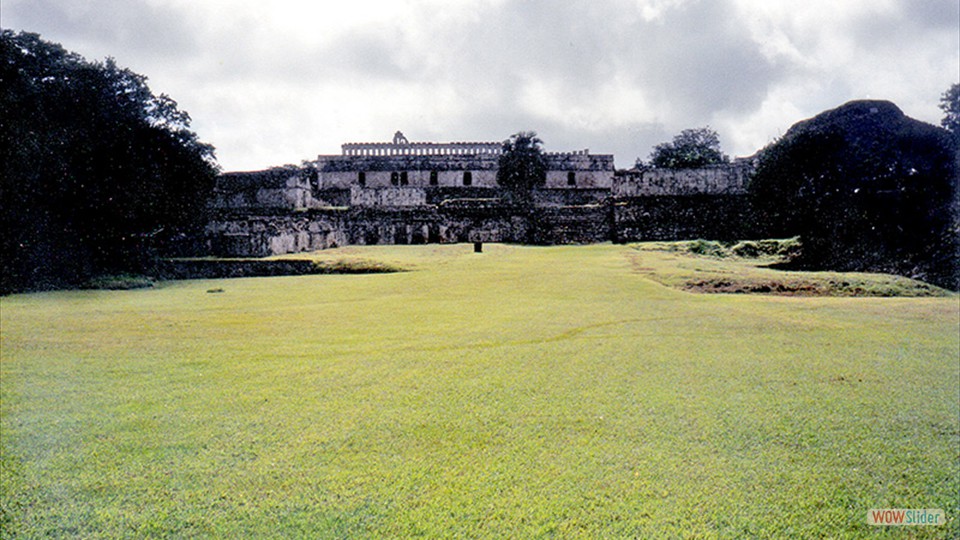
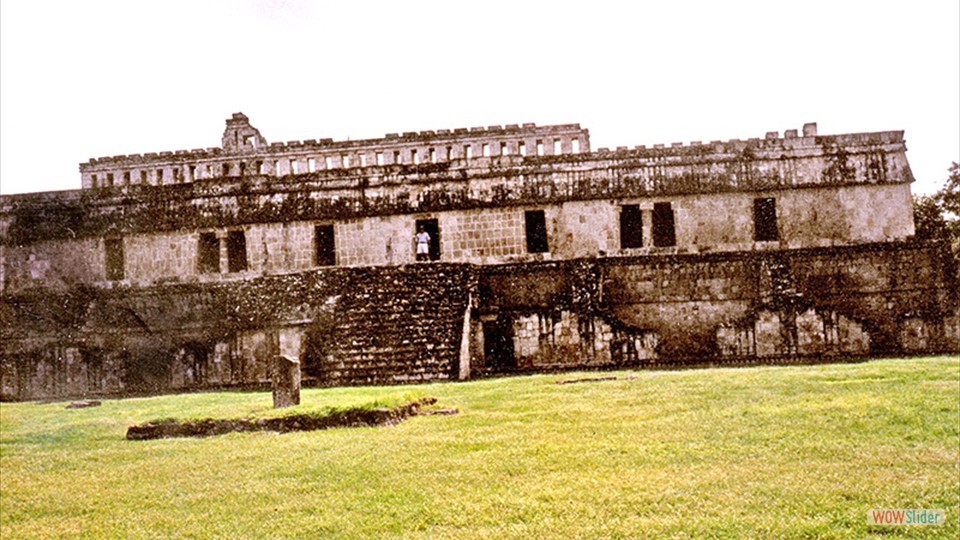
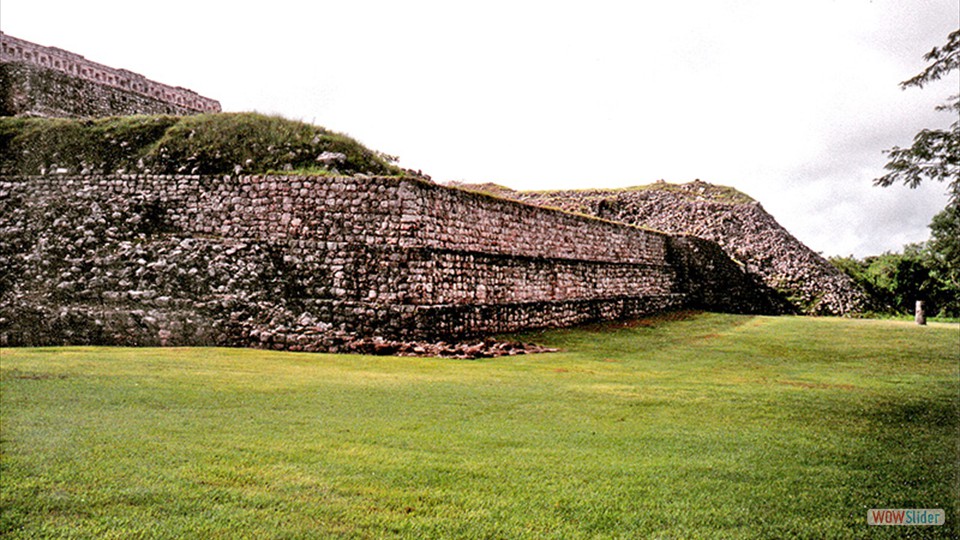
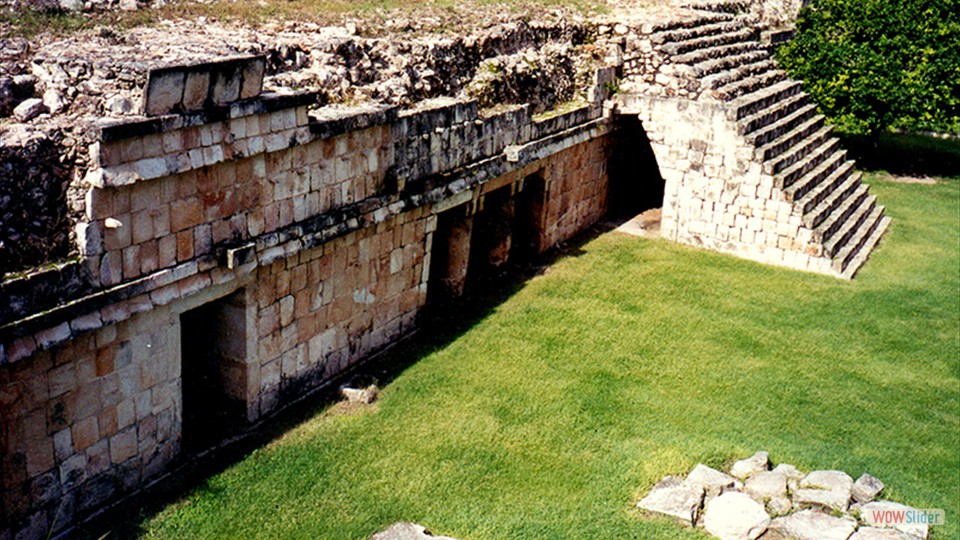
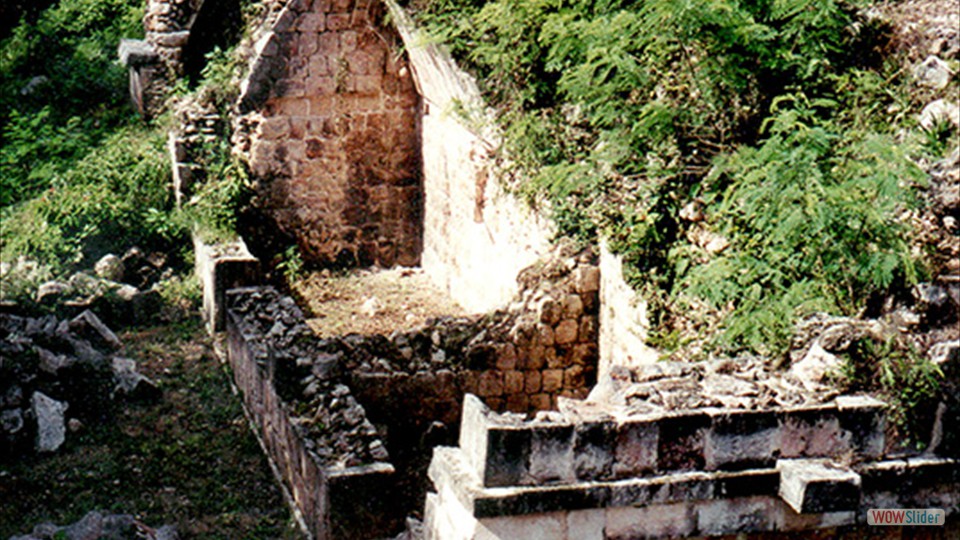
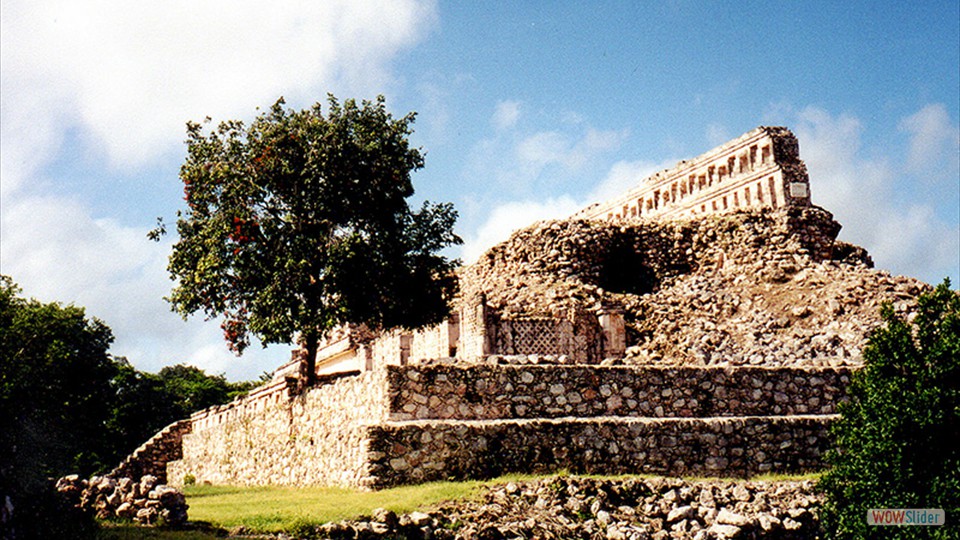
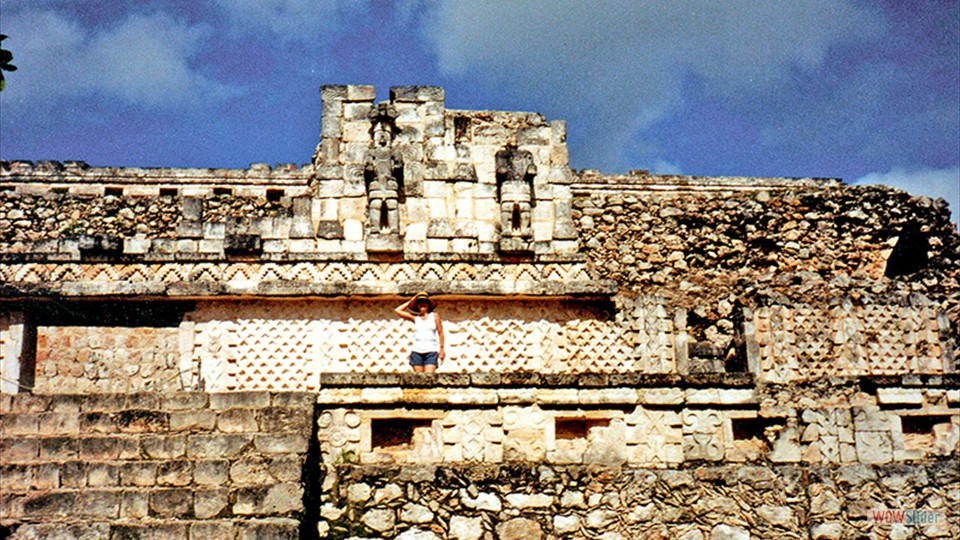
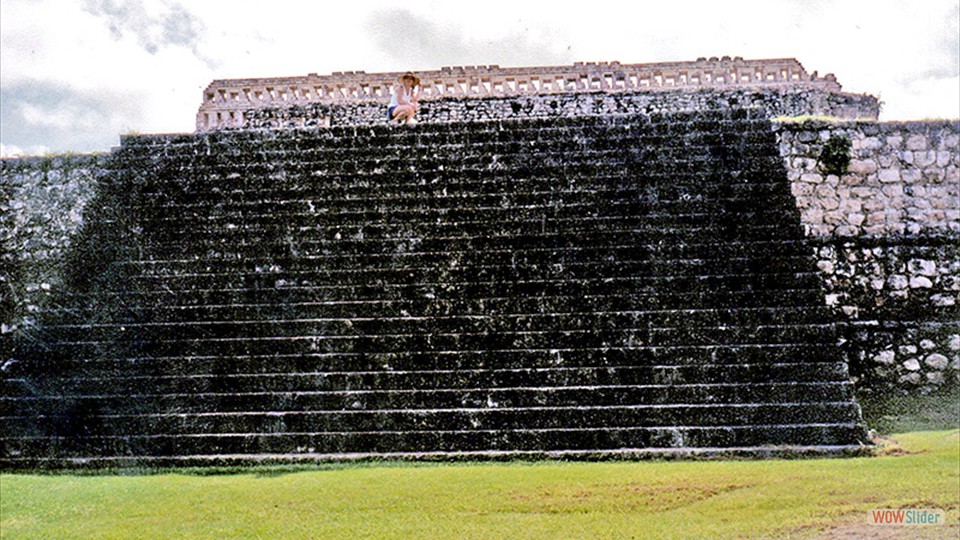
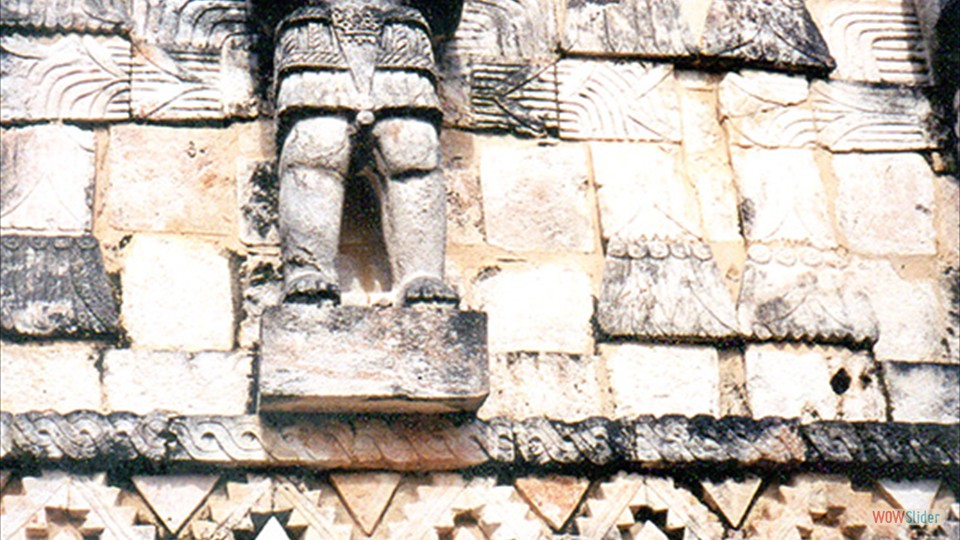
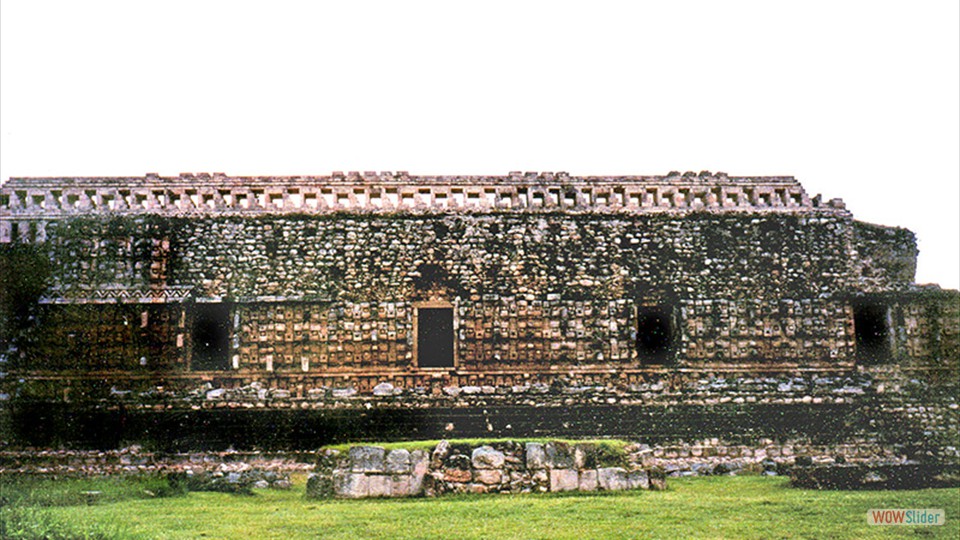
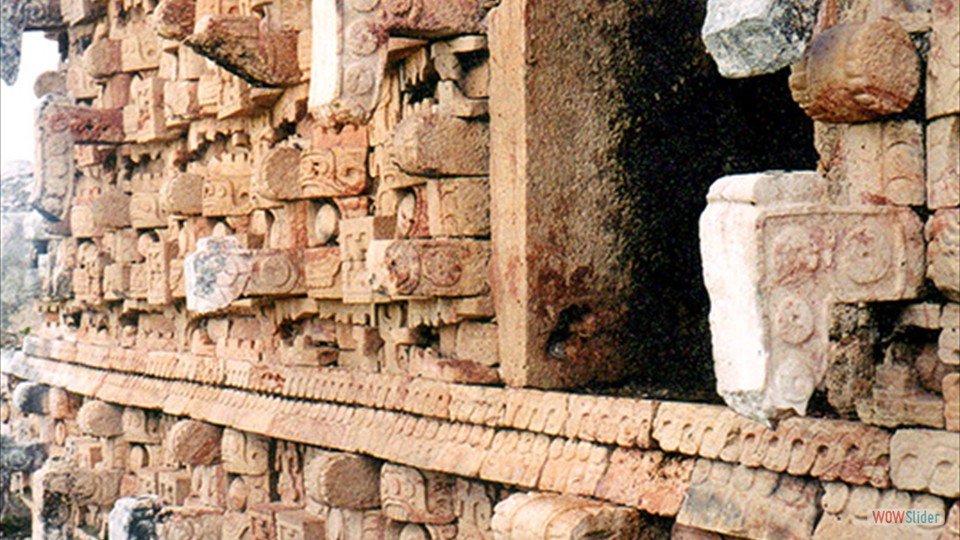
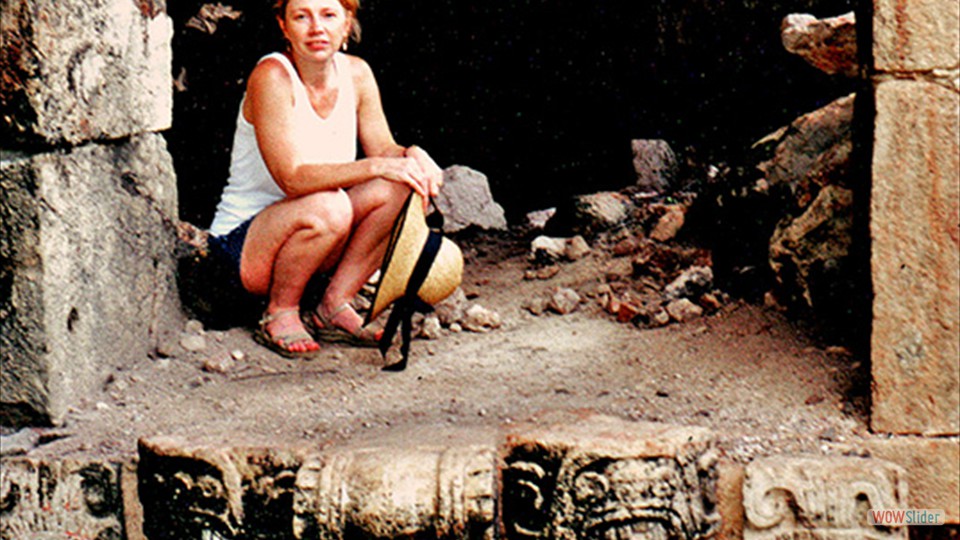
 1
1 2
2 3
3 4
4 5
5 6
6 7
7 8
8 9
9 10
10 11
11 12
12